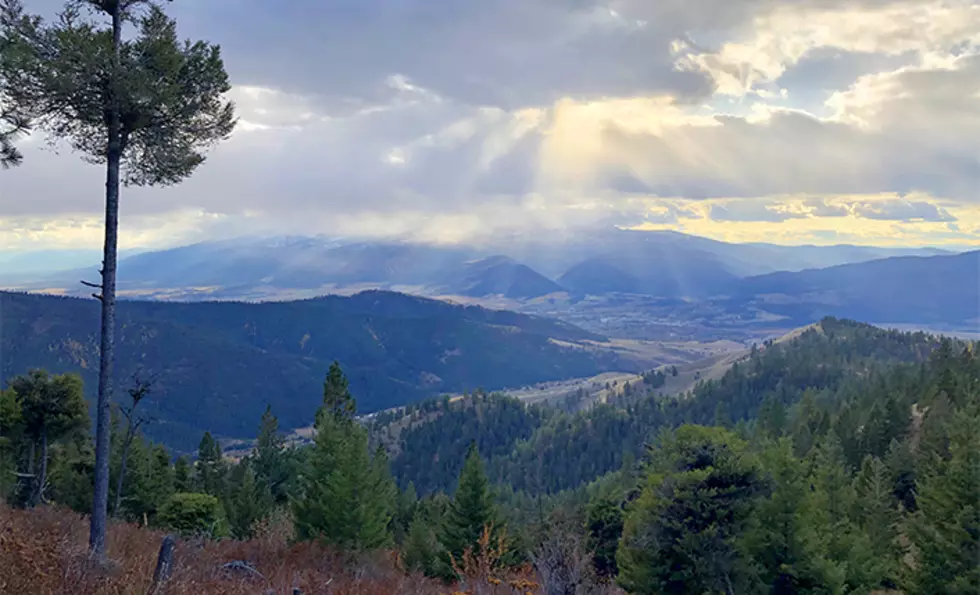
Montana groups, CSKT seek to remove place names honoring Confederate president Davis
Montana wasn’t even a state during the Civil War, so some are questioning why a few creeks and mountains are named for a Confederate president from the South.
Two weeks ago, six Montana nonprofit organizations and the Confederated Salish and Kootenai Tribes petitioned the U.S. Board of Geographic Names to change three geographic features named for Jefferson Davis, the Confederate president during the U.S. Civil War.
The features include Jeff Davis Peak and Jeff Davis Creek at the southern end of the Bitterroot Range, and Jeff Davis Gulch just south of the Helena city limits.
John Todd, Montana Wilderness Association director, said the timing of the request isn’t related to recent national events where groups have lobbied to remove Confederate monuments.
“We had a partner that had some research capacity that was looking into offensive place names in Montana. Familiar places like Davis Gulch in Helena – we realized who the Davis was that it was named after,” Todd said. “It is simply because we became aware that there are three offensive place names that make absolutely no sense to the history of this state. Once you become aware of that, it’s a bit of an obligation to think about how you can change it.”
The other organizations include Montana Racial Equity Project, the Montana Human Rights Network, Forward Montana Foundation, Mai Wah Society, and The Wilderness Society.
The tribes and organizations propose to replace the Davis names with Salish names, because the three sites were all once in Salish territory.
“These places are part of the homelands of the Salish, Pend d’Oreille and Kootenai people, and by acknowledging these connections, you are also offering respect for our history and our culture. Our people have an ancient and continuing presence in this landscape. The simple choosing of a name is another way to show how we care for this place for the generations to come and an important beginning to the healing process,” said CSKT Chairwoman Shelley R. Fyant in a statement.
Jeff Davis Gulch would be replaced with “In-qu-qu-leet” – a rough phonetic rendering of the Salish word meaning “Place of Lodgepole Pine.”
Jeff Davis Peak would become “Three Eagles Peak.” In September 1804, Salish Chief Three Eagles welcomed Lewis and Clark’s Corp of Discovery into his camp and gave the party food, horses and other gifts. The event is depicted on the wall of the Montana House of Representatives in Charles M. Russell’s mural, “Lewis and Clark Meeting the Flathead.”
Finally, Jeff Davis Creek would become “Choos-wee Creek.” “Choos-wee” is the Anglicized spelling of the Salish word for the Chinese people, so it would recognize both the Salish and the Chinese immigrants who are part of the history of many a Montana town.
"We're honored that the Confederated Salish and Kootenai Tribes wanted to recognize the Chinese community that lived along the stream in the 19th century. The proposed name honors Chinese American history, while also reminding us that the area was and is part of traditional Salish territory," said Pat Munday, Mai Wah Society president, in a statement.
After they submitted the petition, the groups got an automated response from the Board of Geographic Names saying the petition would be shared with Montana State Names advisor at the Montana State Library, Todd said. The advisor would oversee the public process and collect comments, which will be forwarded to the Board. The message said the petition process would take several months.
State librarian Jennie Stapp told the Helena Independent Record that the commissioners of Beaverhead and Lewis and Clark counties would be responsible for gathering public comment and making a recommendation that would be sent to the Board, which would make a decision that it would return to the state for review.
It wouldn’t be the first attempt to change Montana place names. The largest effort occurred in 1999, when several legislators – including former Missoula legislators Carol Williams and Diane Sands - backed a bill to remove the derogatory word “squaw” from 76 place names across the state.
The bill passed easily, but the hard part came in deciding what other names to use. And name changes can face opposition if the site is on private land.
It took a few years for “Ch-paa-qun,” – what the Salish historically called the mountain a few dozen miles northwest of Missoula - to finally replace “Squaw Peak.” One requirement of the U.S. Board of Geographic Names is that place names must be pronounceable. Some people wondered if “Ch-paa-qun” would pass muster. Obviously it did. But the requirement is why some of the Salish names proposed for Jeff Davis replacements are Anglicized.
“Squaw” was removed because it denigrates Native American women. Travis McAdam, Montana Human Rights Network program director, said such names signal support for negative values, just as honoring Jefferson Davis signals support “for racism, slavery and the insurrectionist and treasonous Confederacy.”
Todd knows a few will resist the name changes, but all three sites are on public land, which should be welcoming to all Americans.
“We have seen some pushback claiming this is some sort of cancel culture or erasure of history. But whose history are we talking about here? I’m unaware of Jeff Davis having any history here in Montana. But I do care about recognizing the real history of Montana,” Todd said. “When you look at the map and see the names of defenders of slavery, white supremacists and a traitor, that’s not welcoming.”
Contact reporter Laura Lundquist at lundquist@missoulacurrent.com.
